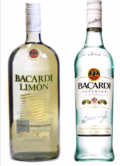Trade mark infringement in relation to goods under the duty suspension arrangement
16-07-2015 Print this page
Economic operator who is importing without the consent of the proprietor and placing those goods under duty suspension arrangement must be classified as ‘using in the course of trade any sign which is identical with the trade markt in relation to goods..’
"On the basis of reading Article 5(3) together with paragraph 1 of that article, it is to be held that the actions of an economic operator such as, in the present case, Van Caem, consisting of importing into the European Union goods without the consent of the proprietor of the trade mark and placing those goods under the duty suspension arrangement, also detaining them in a tax warehouse until the payment of import duties and their release for consumption, must be classified as ‘using in the course of trade any sign which is identical with the trade mark in relation to goods … identical with those for which the trademark is registered’, within the meaning of Article 5(1) of Directive 89/104."
The proprietor of a trade mark may oppose, according to Article 5 of Directive 89/104, a third party placing goods bearing that trade mark under the duty suspension arrangement after they have been introduced into the EEA and released for free circulation without the consent of that proprietor
"Having regard to all the foregoing considerations, the answer to the questions referred is that Article 5 of Directive 89/104 must be interpreted as meaning that the proprietor of a trade mark registered in one or more Member States may oppose a third party placing goods bearing that trade mark under the duty suspension arrangement after they have been introduced into the EEA and released for free circulation without the consent of that proprietor.
48. As Bacardi and the French Government have observed, any act by a third party preventing the proprietor of a registered trade mark in one or more Member States from exercising his right, recognised in the case-law cited at paragraph 32 above, to control the first placing of the goods bearing that mark on the market in the EEA, by its very nature undermines that essential function of the trade mark. The importation of products without the consent of the proprietor of the trade mark concerned and the holding of those products in a tax warehouse before their release for consumption in the European Union has the effect of depriving the proprietor of that mark of the possibility of controlling the conditions of the first placing on the market within the EEA of products bearing its trade mark. Such acts also adversely affect the function of the trade mark of identifying the undertaking from which the products originate and under whose control the initial placing on the market is organised.
49. That analysis is not invalidated by the fact that goods imported and placed under the duty suspension arrangement can subsequently be exported to a third State and thus never be released for consumption in a Member State. In that regard, it is sufficient to note that all goods in free circulation may be exported. That possibility cannot preclude the application of the rules on trade marks to goods imported into the European Union. Furthermore, exportation is also itself an act covered by Article 5(3) of Directive 89/104."
IPPT20150716, CJEU, Mevi v Bacardi
C-379/14 - ECLI:EU:C:2015:497

















